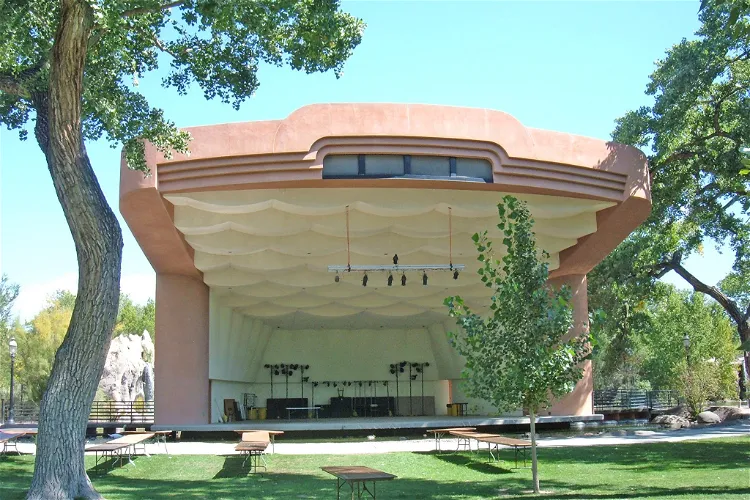Are you an animal lover looking to explore the best animal museums in Albuquerque? Here are your best options:

American International Rattlesnake Museum
Albuquerque, NMThe American International Rattlesnake Museum is an animal conservation museum situated in the heart of Old Town Albuquerque, New Mexico. This location is not only convenient for tourists but also adds a unique charm to the museum experience.
ABQ BioPark Zoo
Albuquerque, NMThe Rio Grande Zoo, which was established in 1927, is a significant part of the Albuquerque Biological Park. Spanning 64 acres, the zoo is situated in Albuquerque and offers a unique experience for visitors. It is an integral part of the city's cultural and recreational landscape.
New Mexico Museum of Natural History & Science
Albuquerque, NMThe New Mexico Museum of Natural History and Science, located near Old Town Albuquerque, is a renowned institution dedicated to the exploration and preservation of natural history and science. Founded in 1986, the museum operates as a public revenue facility of the New Mexico Department of Cultural Affairs, offering a wealth of knowledge and insight into the natural world and the scientific phenomena that shape it.
Albuquerque Biological Park
Albuquerque, NMThe ABQ BioPark, also known as the Albuquerque Biological Park, is an environmental museum situated in Albuquerque, New Mexico. This unique location offers visitors the opportunity to explore and learn about various aspects of the environment and its inhabitants.
Albuquerque Aquarium
Albuquerque, NMThe ABQ BioPark Aquarium showcases a diverse range of saltwater species from the Gulf of Mexico and the South Pacific. These species come from various habitats such as the surf zone, shallow waters, coral reefs, the open ocean, and the deep ocean. This variety provides visitors with a comprehensive understanding of marine life in these regions.- 6
Museum of Southwestern Biology
Albuquerque, NMThe Museum of Southwestern Biology boasts a diverse collection of vascular plants, invertebrates, and vertebrates. These specimens originate from various regions, including the American West, Central and South America, and other parts of the world, offering a comprehensive view of biodiversity.